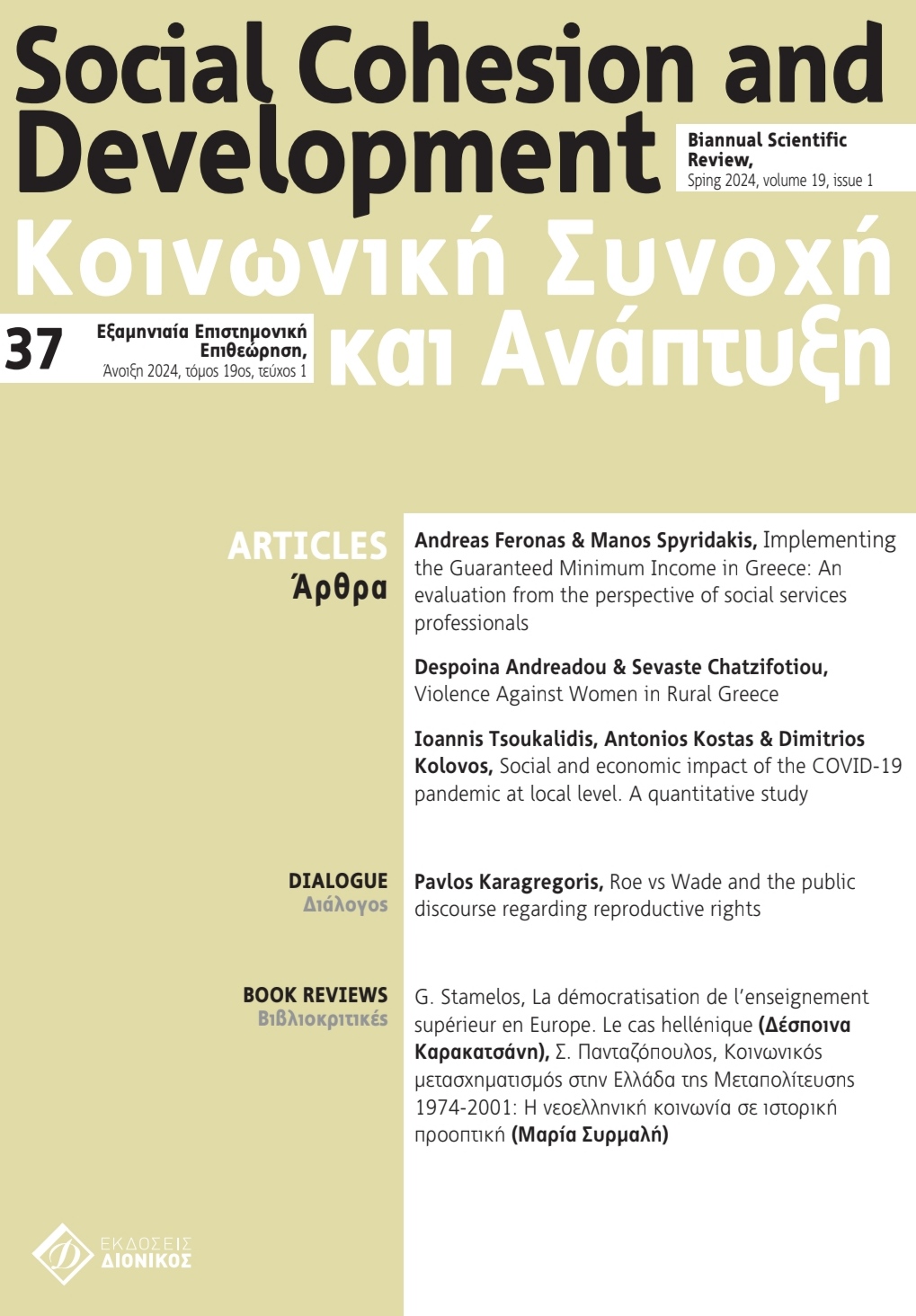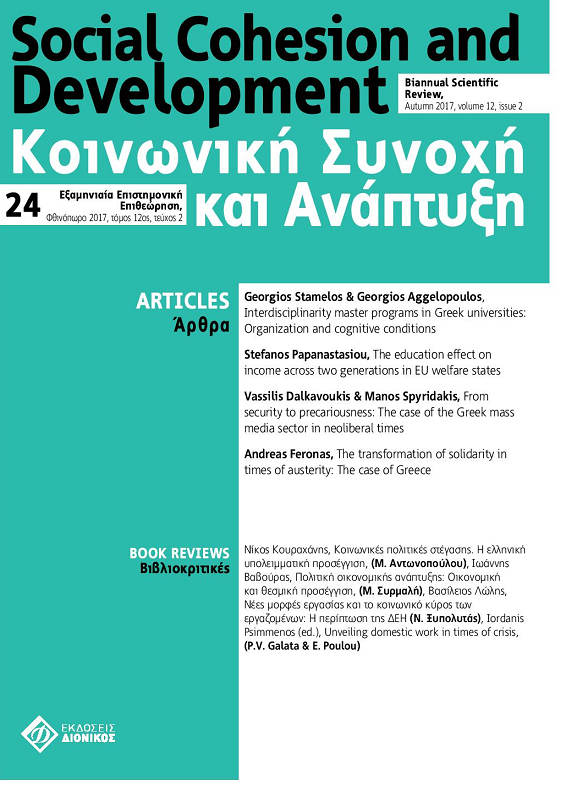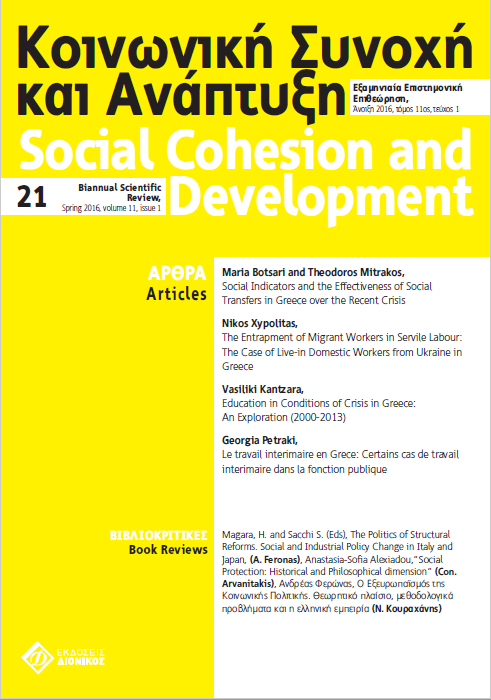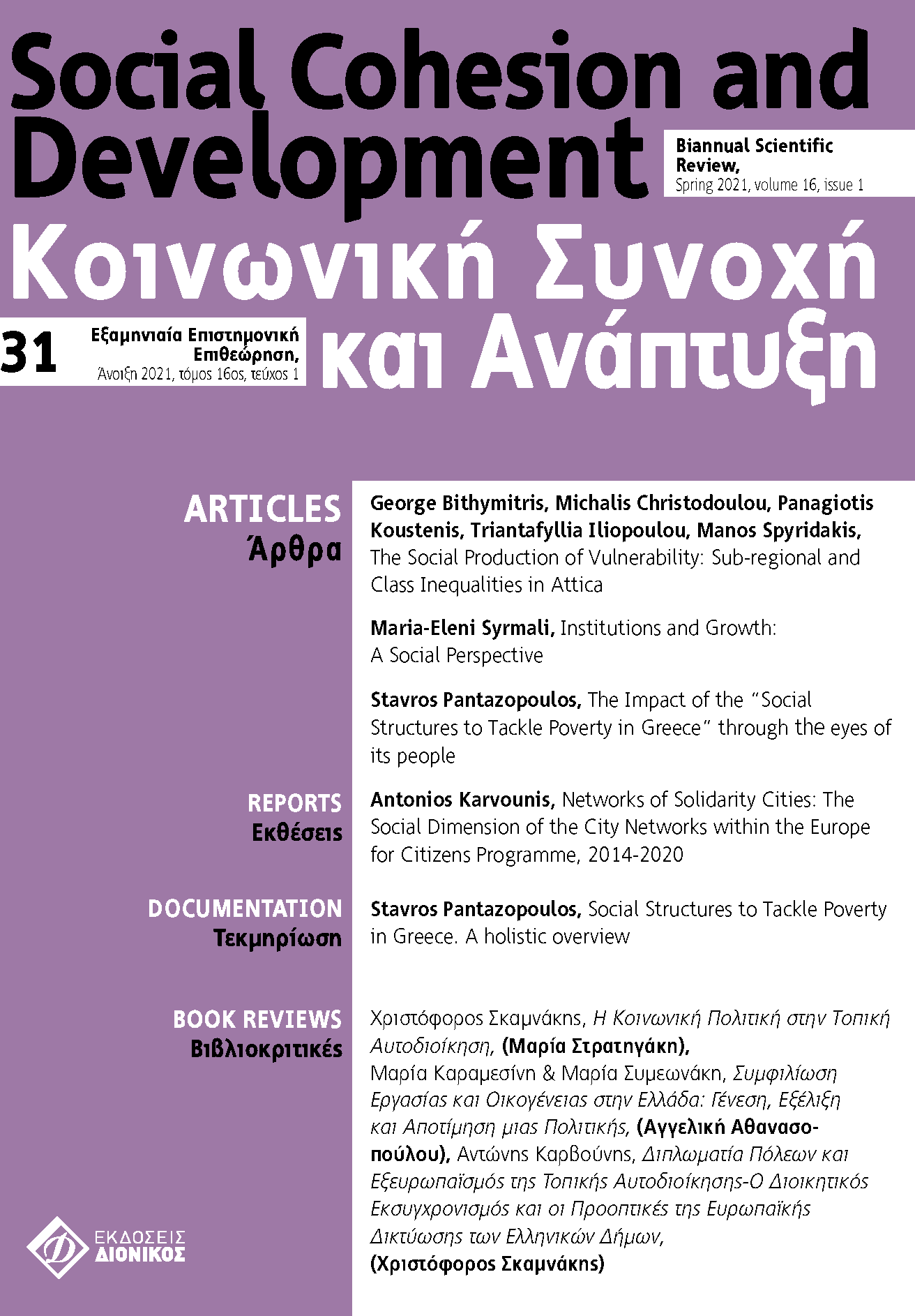Implementing the Guaranteed Minimum Income in Greece: An evaluation from the perspective of social services professionals

Abstract
In contrast to the growing literature on the effectiveness of Minimum Income Schemes (MIS) in alleviating poverty and social exclusion, evaluation studies on the Greek case are scarce. This study explores the effectiveness of the Guaranteed Minimum Income (GMI) in Greece concerning three dimensions: a) adequacy, b) accessibility, and c) enabling. To this end it draws on the findings of 250 quantitative questionnaires completed by social services professionals responsible for its delivery at the local level throughout the country. The findings reveal a picture of ineffectiveness of the Greek GMI in addressing poverty and social exclusion.
The informants present a rather pragmatic view, that GMI is measure that is “better than nothing” in turbulent times. In terms of accessibility, they are quite skeptical regarding several issues, such as the reliability of applications’ assessment, its fair distribution, the extent to which prospective beneficiaries can easily get it as well as the transparency of eligibility criteria. In addition, they express a more discouraging view regarding GMI’s ability in reducing both undeclared work and unemployment and they think that it doesn't give incentives to work.Future research should expand the study of theeffectiveness of GMI to the actual (or potential)
beneficiaries of the Program.
Article Details
- How to Cite
-
Feronas, A., & Spyridakis, M. (2024). Implementing the Guaranteed Minimum Income in Greece: An evaluation from the perspective of social services professionals. Social Cohesion and Development, 19(1), 5–23. https://doi.org/10.12681/scad.39739
- Section
- Articles

This work is licensed under a Creative Commons Attribution-NonCommercial-ShareAlike 4.0 International License.
Authors who publish with this journal agree to the following terms:
- Authors retain copyright and grant the journal right of first publication with the work simultaneously licensed under a Creative Commons Attribution Non-Commercial License that allows others to share the work with an acknowledgement of the work's authorship and initial publication in this journal.
- Authors are able to enter into separate, additional contractual arrangements for the non-exclusive distribution of the journal's published version of the work (e.g. post it to an institutional repository or publish it in a book), with an acknowledgement of its initial publication in this journal.
- Authors are permitted and encouraged to post their work online (preferably in institutional repositories or on their website) prior to and during the submission process, as it can lead to productive exchanges, as well as earlier and greater citation of published work (See The Effect of Open Access).







